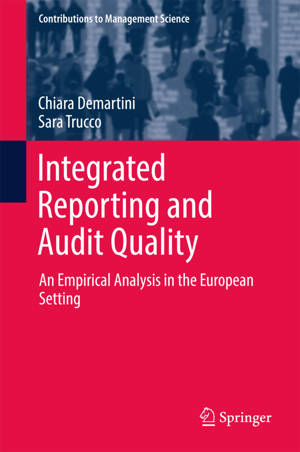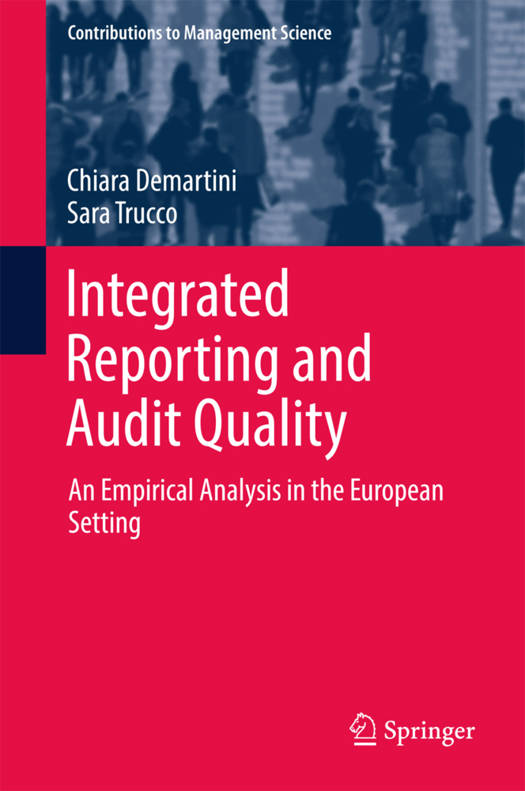
- Afhalen na 1 uur in een winkel met voorraad
- Gratis thuislevering in België vanaf € 30
- Ruim aanbod met 7 miljoen producten
- Afhalen na 1 uur in een winkel met voorraad
- Gratis thuislevering in België vanaf € 30
- Ruim aanbod met 7 miljoen producten
Zoeken
Integrated Reporting and Audit Quality
An Empirical Analysis in the European Setting
Chiara Demartini, Sara Trucco
€ 94,95
+ 189 punten
Uitvoering
Omschrijving
This book analyzes the relationship between integrated reporting and audit quality within the European context, presenting empirical evidence and drawing on a broad review of the available literature in order to evaluate the ability of integrated reporting to enhance audit risk assessment. Dedicated sections first elucidate the concepts of integrated reporting and audit quality. The main integrated reporting frameworks are compared, the role of integrated reporting within a firm's disclosure is examined, and all aspects of audit risk are discussed. The key question of the impacts of integrated reporting on the components of audit risk is then addressed in detail, with reference to empirical findings, their practical implications, and their limitations. The concluding section explores the future of corporate reporting and the development of the next integrated reporting framework and summarizes the insights that the analysis in the book offers into the relationship between integrated reporting and audit quality in the European setting.
Specificaties
Betrokkenen
- Auteur(s):
- Uitgeverij:
Inhoud
- Aantal bladzijden:
- 129
- Taal:
- Engels
- Reeks:
Eigenschappen
- Productcode (EAN):
- 9783319488257
- Verschijningsdatum:
- 24/04/2017
- Uitvoering:
- Hardcover
- Formaat:
- Genaaid
- Afmetingen:
- 156 mm x 234 mm
- Gewicht:
- 376 g

Alleen bij Standaard Boekhandel
+ 189 punten op je klantenkaart van Standaard Boekhandel
Beoordelingen
We publiceren alleen reviews die voldoen aan de voorwaarden voor reviews. Bekijk onze voorwaarden voor reviews.











